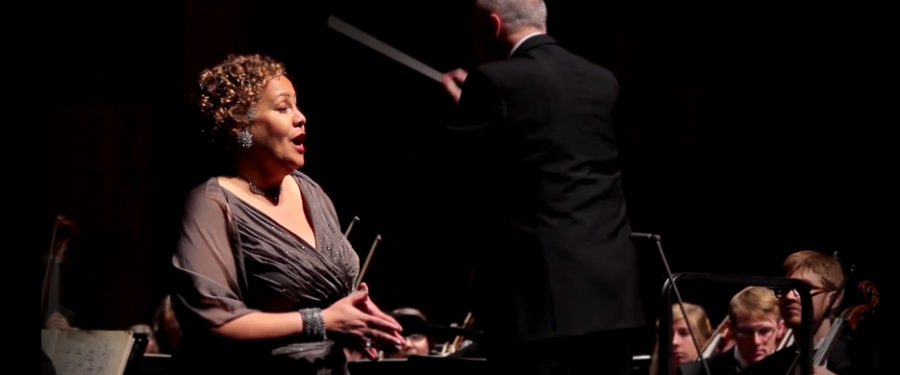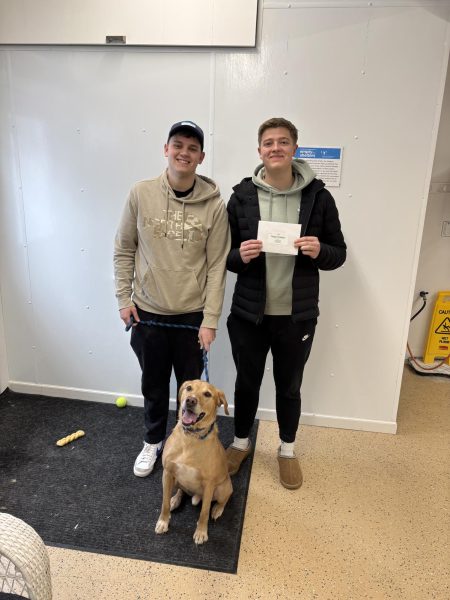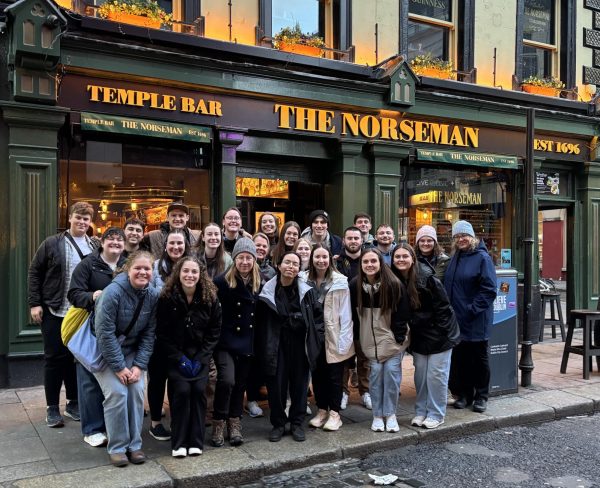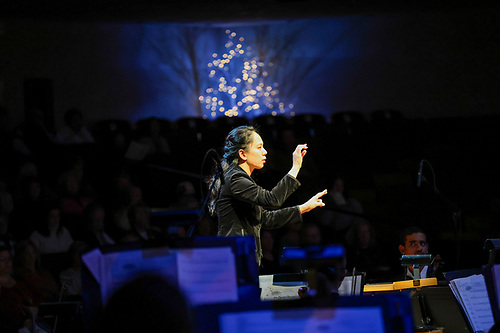Toppin leads music department roundtable, promotes anti-racism in music education
“There’s a lack of courage for universities and performing institutions to tackle something that they don’t know,” University of Michigan Professor of Music Louise Toppin said. “They have patrons and subscriptions, so they don’t want to rock the boat. We program Mozart every single year, or Beethoven, because we know that they will come back to hear another Beethoven symphony.”
On Thursday, November 18 at 9:45 a.m., the music department hosted an anti-racism roundtable featuring guest lecturer Toppin. Discussion centered around the lack of diversity in the music world, and how music educators can properly deal with works by Black composers.
Racism in music is the central issue Toppin has been working to combat for most of her career.Toppin earned her BA in piano performance from UNC-Chapel Hill, masters degrees in piano and voice from the Peabody Conservatory at Johns Hopkins University, and earned her Doctorate of Musical Arts at the University of Michigan, where she currently teaches. In her education, Toppin developed a passion for African-American music and improving its accessibility for students and audiences.
Thursday’s event kicked off with a performance by Alumni Guest Lecturer in Music Emily Dirks (‘18), who sang “Amazing Grace” by Leslie Adams, accompanied by Assistant Professor of Music Nicholas Shaneyfelt. The piece is from Toppin’s recently released anthology. This was followed by Toppin’s presentation on what she calls “the power of one,” — how one teacher or student performing these songs or discussing these issues can spread to others.
“When you normalize [African-American music] as repertoire, it leads students to their own research about these pieces, and allows it to be easily shared,” music department anti-racism task force member Phoenix Bradley (‘23) said. “It starts with one voice but continues with many.”
Toppin went into detail about the lengths she has gone to make this music more readily available to a wider audience. She has spent a great deal of time creating a database of music for singers and other performers that includes the works of African American artists, poets, and composers called the African Diaspora Music Project. Musicians looking to perform these types of works now have an easy way to find them.
One question posed to Toppin following her presentation highlighted another part of her work addressing inclusivity in music.
“Are there certain [songs] within this repertoire about slavery?” Dirks asked. “Isn’t it wrong for a person who looks like me to be singing those stories, not having been in that [situation]?”
In response to this question, Toppin recommended a series of resources, including those found in the aforementioned database. In addition to this, she endorsed the George Shirley Vocal Competition, which includes many seminars and classes on teaching music of diverse subject matter and origin to students and educators. These classes are meant to explore difficult concepts, and Toppin recommended attending the festival to Dirks to help her become more educated on the subject.
“There is some repertoire that a person may not have comfort singing, and should not consider if you don’t have the full context,” Toppin said. “If you can’t fully explain what you’re doing, then I think that it’s not going to feel appropriate. But you do also need to know how to teach the repertoire because we don’t want to have a disconnect between the students desire to sing the repertoire and the teacher’s discomfort in knowing how to teach the repertoire.”
The discussion ended with a second piece from Toppin’s recent anthology, a rendition of “Prayer,” text written by Langston Hughes with musical arrangement by Carlos Simon, sung by Luther’s Professor of Music Andrew Whitfield. Bradley believes that the resources provided by Toppin during her presentation will empower members of the department with the information to appropriately program and perform works by Black composers.
“Seeing as we have zero Black faculty in the music department, I can tell that part of the problem and hesitation for moving forward in this area is they still don’t have that place of knowing they can do it correctly,” Bradley said. “Having somebody tell them ‘here is a space where you can learn about it’ is great.”
The music department’s anti-racism task force hopes to continue to provide resources and discussion to help the Luther community continue down the path of inclusivity, and create a welcoming environment for all voices in the music department.






